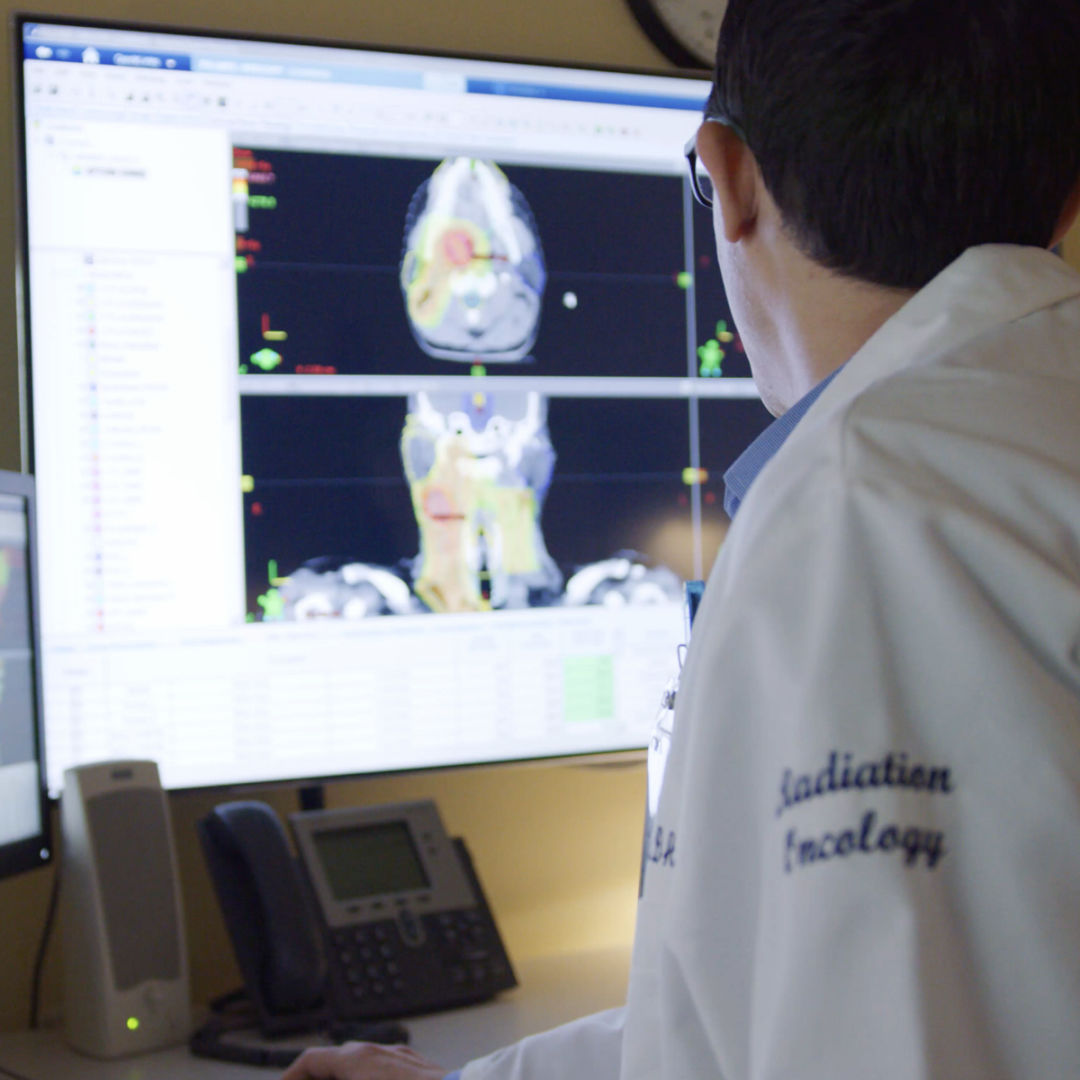‘Extraordinarily Rare’ Procedure to Keep a Heart Beating During the Pandemic

Kaiser Permanente’s radiation oncology team and cardiac team collaborated in a rare procedure.
Image: Courtesy Kaiser Permanente
In August 2020, when Dr. Christopher Hoffelt and his team at Kaiser Permanente’s Interstate Radiation Oncology Center performed a radiosurgery — which uses focused beams of radiation to target cancerous tissue — the procedure was nothing short of extraordinary.
It was hardly the first time he’d done this type of treatment. Dr. Hoffelt, a Kaiser Permanente radiation oncologist, has treated cancer patients with radiation therapy many times over the course of his career. However, on that day in August, the procedure on a heart patient was not only a first for Dr. Hoffelt but also the first time a procedure of its kind was performed in the state of Oregon.
Extraordinary and Rare
Stereotactic radiosurgery is a hyper-focused radiation technique that is frequently used to treat tumors of the brain, spine, liver, and kidney. What made this occasion unusual is that it was being used to treat a ventricular tachycardia, a functional disorder that causes irregular rhythms in the heart.
“To do this kind of procedure on the heart is extraordinarily rare, and it’s new,” says Dr. Hoffelt. “But it’s largely the only option for certain kinds of patients.”
That was the case with Robert Brinkman. For nearly 20 years, Brinkman had been experiencing symptoms of arrhythmia — a problem with the rate and rhythm of the heartbeat. After trying numerous medications, outpatient treatments, and two open-heart surgeries without success, doctors had run out of options for how to address his condition. That’s when they decided to try stereotactic radiosurgery which involved a collaboration between Kaiser Permanente’s Cardiac and Cancer teams.
An Out-of-Sync Heart
When a person’s heart doesn’t follow a regular rhythm pattern, it can cause the heart to run too fast or too slow and can ultimately result in death. This can happen as a result of a congenital issue or heart damage due to vascular injury or blockage. Often, medications are enough to set things right. But medications don’t always work, and side effects are sometimes intolerable. As an alternative, doctors can shock the person’s heart into rhythm by using a defibrillator or installing a pacemaker. Yet another option is cardiac ablation, in which heat is used to remove the spot where the bad rhythm originates.
Despite trying a variety of treatments, Brinkman’s arrhythmia would always return eventually, and he had visited the hospital twice a month for more than a year. So, despite the fact that no one in the Northwest had ever used radiation to solve a heart condition, he and Dr. Hoffelt decided to move ahead. “It was kind of my last option,” says Brinkman.
A Collaborative Effort
Adapting this procedure for a heart issue was challenging, but nothing Oregon’s highest rated heart program couldn’t handle.* Because this type of radiation is typically used to attack tumors, there’s usually an obvious target to focus on. But that’s not the case with arrhythmia. So Dr. Hoffelt did extensive consulting with Brinkman’s cardiologist and electrophysiologist at Kaiser Permanente Northwest to identify the problem area.
Once they did, the outpatient procedure itself was quick and painless, taking less than an hour and with no need for anesthesia. But it appears to have been a success.
Since the procedure, Brinkman has experienced only minor abnormal heart rhythms and has had no hospitalizations. And he’s happy to be back to a bit of regular life, like driving. “There was a whole year that I didn’t drive,” he says. “My wife was stuck doing everything for us.”
Dr. Hoffelt is thrilled to have been able to provide a cutting-edge treatment that brought his patient relief. “It was a privilege to have an opportunity to do something like this,” he says. “I’ve had countless great cancer outcomes, but this is one of the coolest things I've ever gotten to be a part of.”
To learn more about Kaiser Permanente’s cancer and heart programs, visit kp.org/cancer/nw and kp.org/cardiac/nw.
